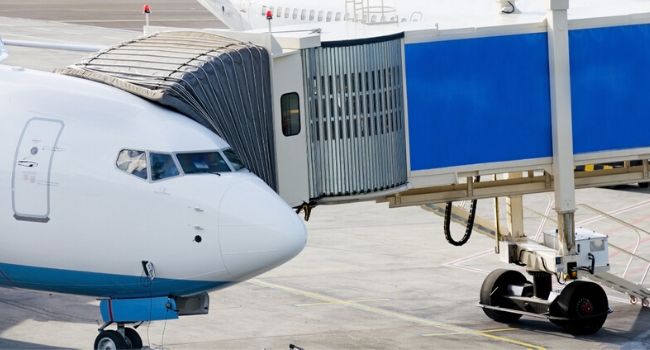
Texas Legislators Introduce Bill to Restrict Purchasing Chinese Airport Equipment Due to Security Concerns
The legislation addresses the purchase of airport equipment, particularly passenger boarding bridges, from countries that are known for IP theft or national security threats.
- By Haley Samsel
- May 21, 2020
Under new legislation proposed by two Texans in the House of Representatives, airports would be prohibited from using federal funds to buy airport equipment in countries that are classified as potentially posing a national security threat to the U.S., including China.
The bipartisan bill, titled the Airport Infrastructure Resources Security Act, would apply to passenger boarding bridges and other infrastructure equipment, according to The Hill. Government officials have recently warned cities and other entities to stop purchasing transportation and other infrastructure systems from China, which has become a heavy hitter in building transit systems in the U.S.
Rep. Ron Wright (R-Texas), who introduced the legislation with Rep. Marc Veasey (D-Texas), said in a statement that his legislation is partly a response to the Chinese Communist Party’s response to the COVID-19 pandemic and what U.S. officials view as continued attempts to threaten American national security.
“Make no mistake, the CCP will stop at nothing to gain power and control,” Wright said. “We cannot afford to give them inroads to our most critical systems.”
He added that he and Veasey want to “ensure taxpayer dollars do not go to Chinese-owned or subsidized passenger boarding bridge companies that are hoping to steal from and spy on the American people.”
In a separate statement, Veasey emphasized the importance of the aviation industry to the economy in North Texas, where American Airlines and Southwest Airlines are headquartered.
“I am proud to co-sponsor this legislation with my colleague, Rep. Wright, that will help protect jobs for hardworking North Texans by making sure there is a price to pay for IP theft,” Veasey said. “As we emerge from the tragedy of the COVID-19 pandemic, one way to help rebuild the economy and get Americans back to work is by rebuilding our infrastructure. However, it is important that as we make these investments we are not rewarding foreign state-owned enterprises who have a history of IP violations.”
According to The Hill, supporters of the legislation are pointing to CIMC-Tianda, a Chinese company that manufactures the boarding bridges, as a key offender of industrial espionage. The company was found guilty of the crime by a U.S. federal court in Houston, and Florida lawmakers voiced concerns about the potential installation of CIMC-Tianda products at Miami International Airport in December.
About the Author
Haley Samsel is an Associate Content Editor for the Infrastructure Solutions Group at 1105 Media.